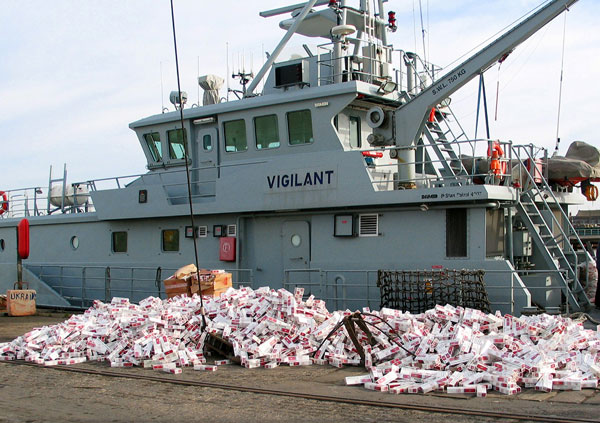The co-operation between the European Anti-Fraud Office and Montenegrin Customs has recently been reinforced, according to the EU Commission.
The Commission was responding to concerns raised by a Portuguese member of the EU Parliament about a possible increase in the number of cigarettes being smuggled into the EU from Montenegro.
In a preamble to three questions posed to the Commission, Ana Gomes said the Commission’s 2018 report on Montenegro had highlighted continuing issues surrounding illicit tobacco products entering the EU from the country’s free-trade zone at the port of Bar, and OLAF’s [European anti-fraud office] co-operation with national customs authorities with a view to controlling the flow of these products.
‘Media reports confirm that the Government of Montenegro has authorised a new free-trade zone in Podgorica to begin operations,’ she said.
‘The Podgorica free trade zone is all the more concerning as it contains a cigarette factory, which reportedly began production trials in late May 2018.
‘These developments present a new threat which could result in an increase in the number of cigarettes being smuggled into the EU from Montenegro.’
The MEP asked:
* ‘Can the Commission confirm that it is aware of the establishment of a new free-trade zone in Podgorica?
* ‘Can it provide details of the measures it intends to take with the Montenegrin authorities to put in place adequate controls on the flow of products from the new cigarette factory located in the new free-trade zone in Podgorica?
* ‘Can it indicate how the illicit trade in tobacco products will be addressed in the context of the accession negotiations on Montenegro’s candidature to join the EU?’
In reply, the Commission said that within the framework of EU accession negotiations, the Commission closely followed customs developments in Montenegro with regard to the relevant aspects of EU law. ‘It has therefore followed developments regarding the Novi Duvanski Kombinat free zone in Podgorica, and has been kept informed by Montenegrin Customs Administration of the measures that are being put in place there to strengthen inspections, in line with EU standards,’ it said.
‘Montenegro is a signatory to the World Health Organization Framework Convention on Tobacco Control (FCTC) and ratified the FCTC Protocol to Eliminate Illicit Trade in Tobacco Products in October 2017. The Montenegrin Law on Free Zones is broadly aligned with EU provisions and Montenegro’s special customs procedures on warehousing and inward processing are broadly aligned with the European Union’s customs code.
‘The issue of illicit trade in tobacco products is closely monitored by the Commission, and the co-operation with Commission services, notably The European Anti-Fraud Office and Montenegrin Customs, has recently been reinforced.’
Co-operation reinforced











